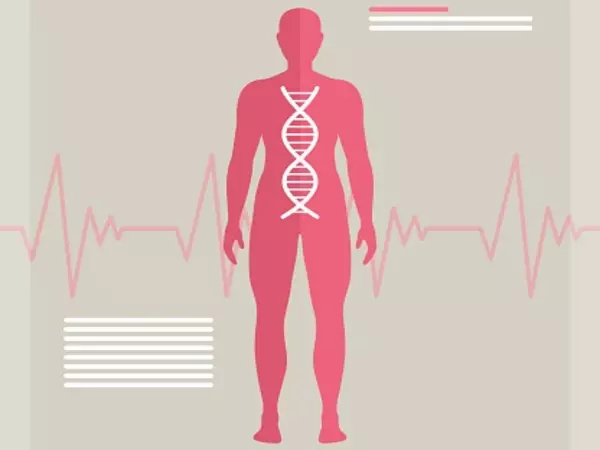Large-scale genetic studies, such as genome-wide association studies (GWAS) and family-based studies, are commonly used in research into genetic risk factors for heart failure. One of the largest genetic association studies on heart failure to date was undertaken by a global team of specialists. Using genomic data from over 90,000 heart failure patients and over a million controls, the researchers discovered 39 genetic variants linked to heart failure, 18 of which had never been reported before.
A global team of scientists conducted one of the largest genetic association studies on heart failure to date in a new study co-led by experts at the United States Department of Veterans Affairs and Brigham and Women’s Hospital, a founding member of the Mass General Brigham healthcare system. Using genomic data from over 90,000 heart failure patients and over a million controls, the researchers discovered 39 genetic variants linked to heart failure, 18 of which had never been reported before.
The researchers also identified seven druggable proteins that, when targeted with carefully formulated drugs, may help to prevent the onset of heart failure. They believe their findings, which were published today in Nature Communications, will one day help physicians detect and treat at-risk patients before they develop heart failure.
Our study provides a better understanding of disease etiology, identifies causal pathways, and pinpoints potential drug targets for the primary prevention of heart failure.
Danielle Rasooly
“Our study provides a better understanding of disease etiology, identifies causal pathways, and pinpoints potential drug targets for the primary prevention of heart failure,” said lead author Danielle Rasooly, Ph.D., a research associate in the Brigham’s Department of Medicine. Rasooly is also an investigator for the VA’s Million Veteran Program.
Heart failure affects about 60 million individuals globally, including 6 million in the United States, and costs the American healthcare system more than $30 billion every year. Patients diagnosed with heart failure have a 50% five-year survival rate, putting pressure on scientists to better understand the environmental and genetic risk factors connected with heart failure.
Despite the fact that multiple studies over the last decade have employed advanced computing approaches to discover genetic risk factors for heart failure, scientists have wondered if their small sample sizes allowed certain undetected mutations to slip between the cracks. Genome-wide association Studies (GWAS), which look for changes in the DNA of disease patients and healthy controls, are only as thorough as the datasets on which they are based. GWAS with larger sample sizes have more statistical power, meaning they’re able to find mutations that smaller cohort studies may miss.

The team gathered genomes from two established genetic research groups to create their huge cohort. The study used 302,287 genomes from the Million Veteran Program (MVP), a national endeavor established in 2011 to explore the long-term health consequences of United States Veterans. Heart failure is a particular issue for veterans, with some research indicating that they are more likely to acquire heart disease. Over 950,000 veterans have enrolled in MVP to date.
“We want to thank all the veterans who have taken part in the MVP and allowed us to study how genes affect heart failure,” Rasooly said.
The remaining 977,323 genomes were pulled from the Heart Failure Molecular Epidemiology for Therapeutic Targets (HERMES) consortium, which includes data from patients across several European countries. In total, the team analyzed 1,279,610 genome samples, 90,653 of which belonged to patients with heart failure.
With such a huge dataset, Brigham and Veterans Association researchers were able to identify 38 genetic mutations, or variants, that were linked to the presence of heart failure. Smaller GWAS studies have not previously identified eighteen of these polymorphisms as risk factors for heart failure.
The researchers then used a technique known as Mendelian randomization, which computationally mimics how different interventions may alter disease outcomes. They looked for genetic markers of proteins that, when raised or lowered in their dataset of individuals, resulted in a lower risk of heart failure. Among nearly 5,000 candidates, their technique identified seven druggable proteins that scientists believe can be targeted to reduce an individual’s chance of getting heart disease.
According to the researchers, these findings, together with future research to better understand the genetic causes of heart failure, could one day allow clinicians to anticipate if a patient’s particular genetic profile puts them at a higher risk of getting heart failure during their lifetime. Drugmakers might also use the team’s findings to narrow down which proteins to target when creating medications to reduce the chance of heart failure.
“It’s well known that over 95% of clinical trials fail, and I think the techniques we leverage in this study can decrease this failure rate,” Rasooly stated. “Drug targets identified through genetics have at least twice the odds of success in drug discovery.”
















